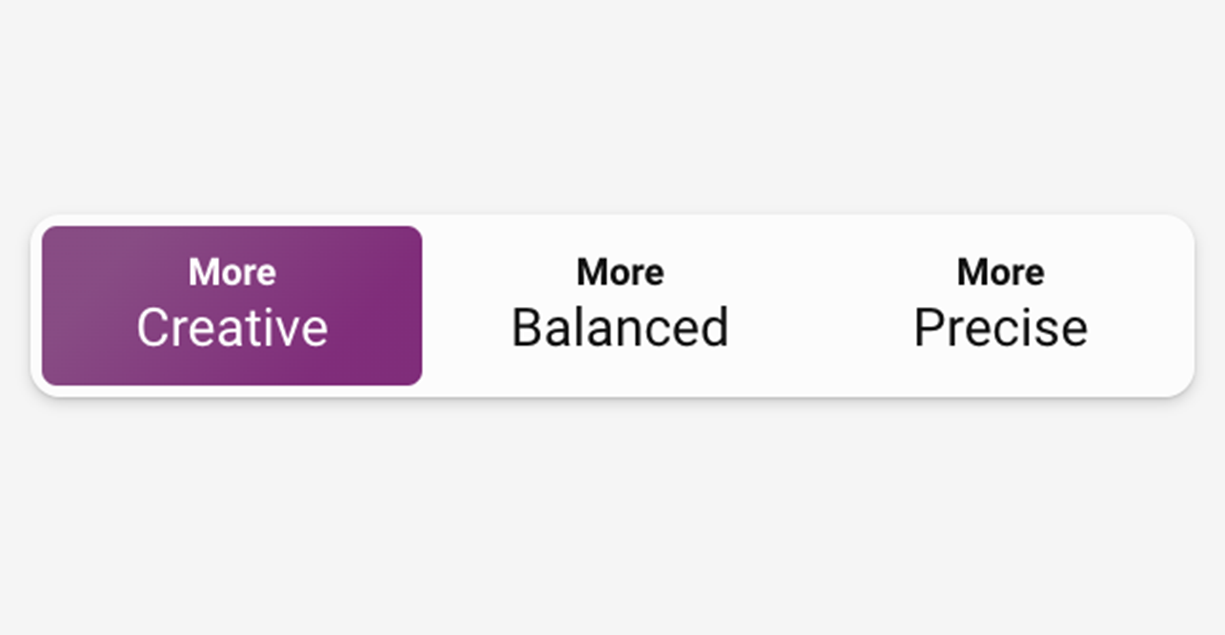
Creative Mode
Start an original and imaginative chat.
*To simplify the experience and make Copilot more accessible to everyone, Bing Chat Enterprise has become Copilot. Learn more.
Important:
Copilot is not HIPAA compliant yet. Copilot unlocks generative AI for capabilities around asking questions and generating responses from the web. It does, however, have some limitations, such as working with documents and/or conducting custom searches within University of Miami firewalls. If you need any assistance around similar examples, or other potential use cases surrounding generative AI, please reach out to the Department of Data Science and Research Informatics at dsri@med.miami.edu or Academic Technologies at academictechnologies@miami.edu.
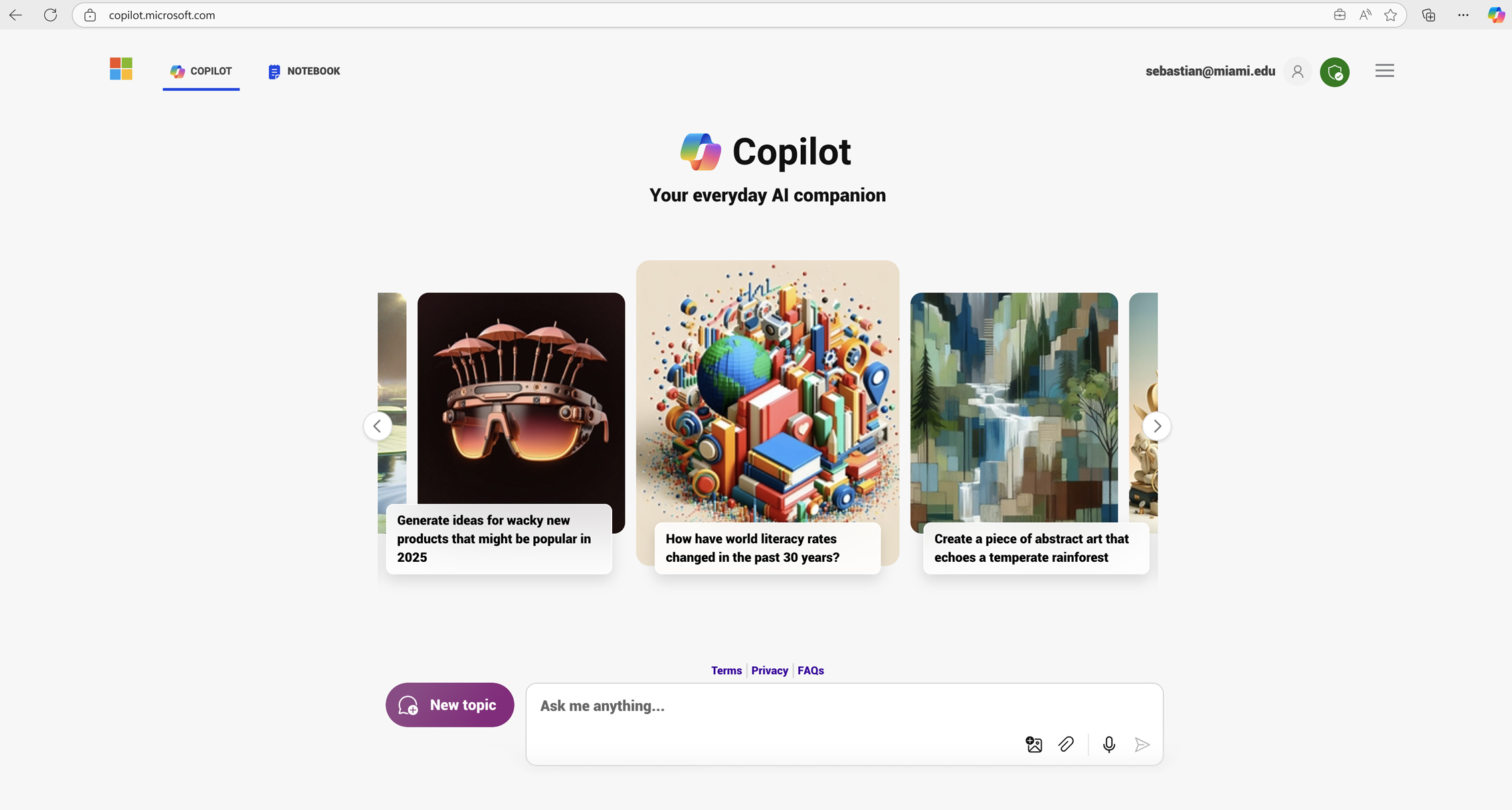
Available for: UM faculty, staff, and students (ages 18 and above)
Login: copilot.microsoft.com
*Note: To access Copilot, the preferred Internet browser is Microsoft Edge. While Copilot may function on other browsers, use of Microsoft Edge enables a full range of Microsoft's AI-related features. The new DALL-E advanced image generation integration empowers users to create custom visuals on-the-fly, streamlining content creation for academic and administrative purposes. Learn How to Create AI Images with DALL-E Faculty – We invite you to learn more about how to effectively integrate Copilot in the classroom: Students – As per Microsoft's higher education use agreement, only students ages 18 and above can access Copilot with commercial data protection.![]() University of Miami students, faculty, and staff can access Copilot by visiting copilot.microsoft.com and/or via the Microsoft Edge* sidebar. Check for the green "Protected" tag on the top-right of the Copilot experience page. If you don't see it, click Sign in, then sign in with your UM CaneID email to start the Microsoft login process.
University of Miami students, faculty, and staff can access Copilot by visiting copilot.microsoft.com and/or via the Microsoft Edge* sidebar. Check for the green "Protected" tag on the top-right of the Copilot experience page. If you don't see it, click Sign in, then sign in with your UM CaneID email to start the Microsoft login process.Accessing Copilot (previously Bing Chat Enterprise):
You can use Copilot to get work done faster, be more creative, or support customers better. All of this can be done with the confidence that individual and business data is protected and will not leak outside the organization. For example, Copilot can help you quickly generate content, analyze or compare data, summarize documents, learn new skills, write code, and much more. While doing this, you can be assured your organizational data is protected.
Use Cases

Start an original and imaginative chat.
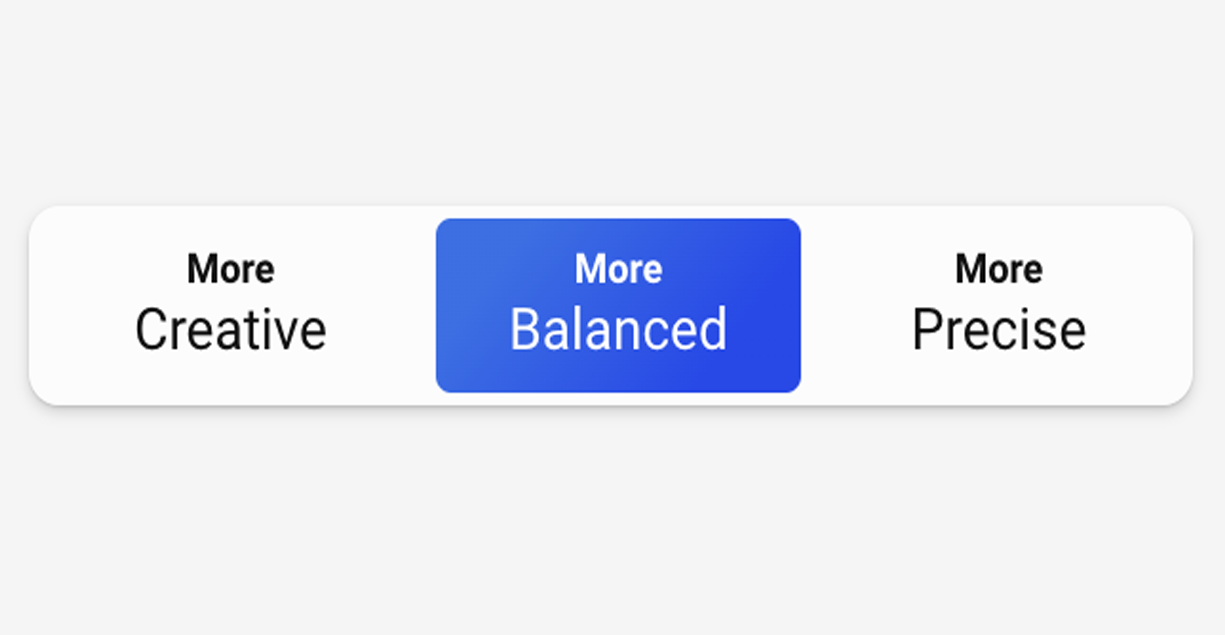
Start an informative and friendly chat.
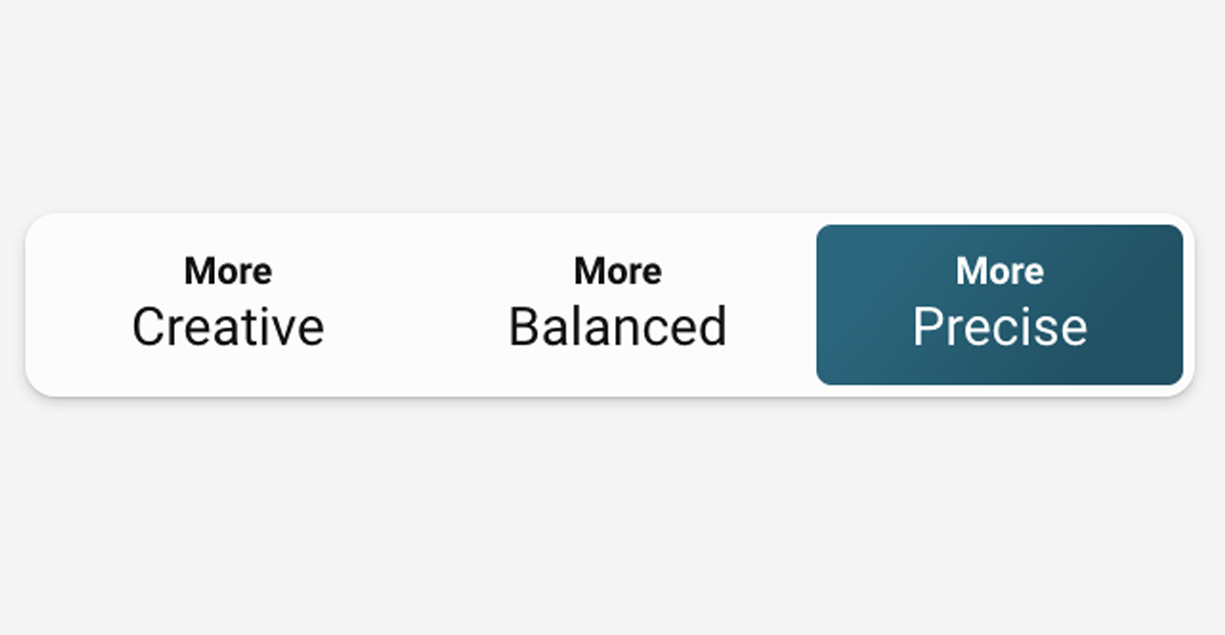
Start a concise and straightforward chat.
Prompts

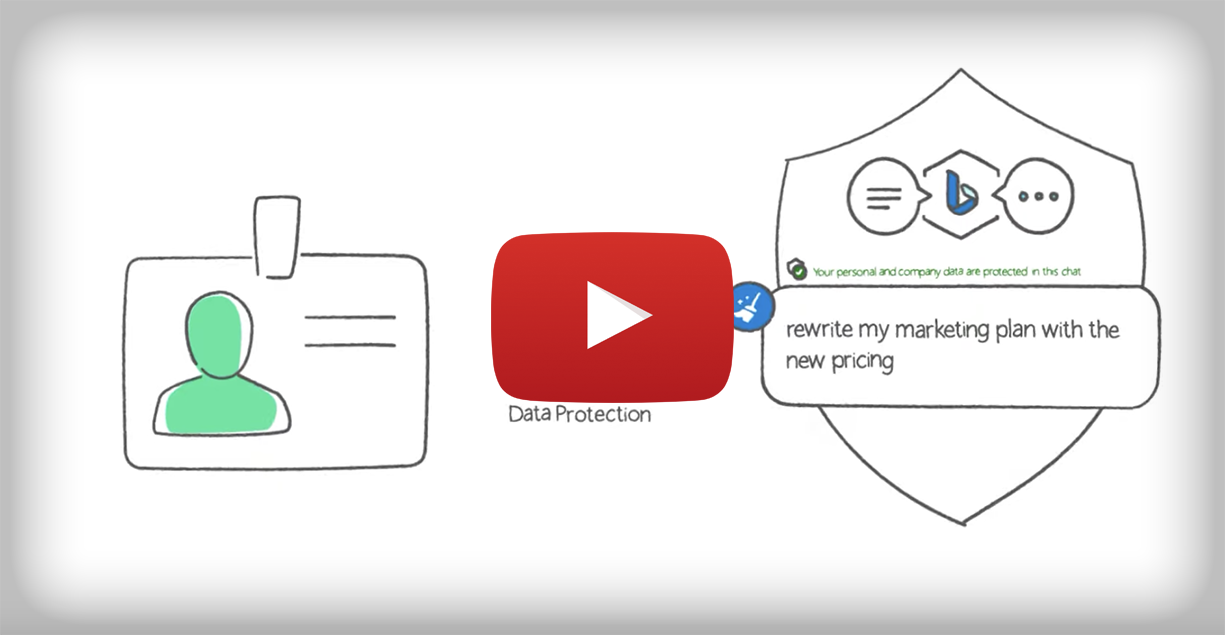
Watch this video to better understand what Copilot is and how it protects data.
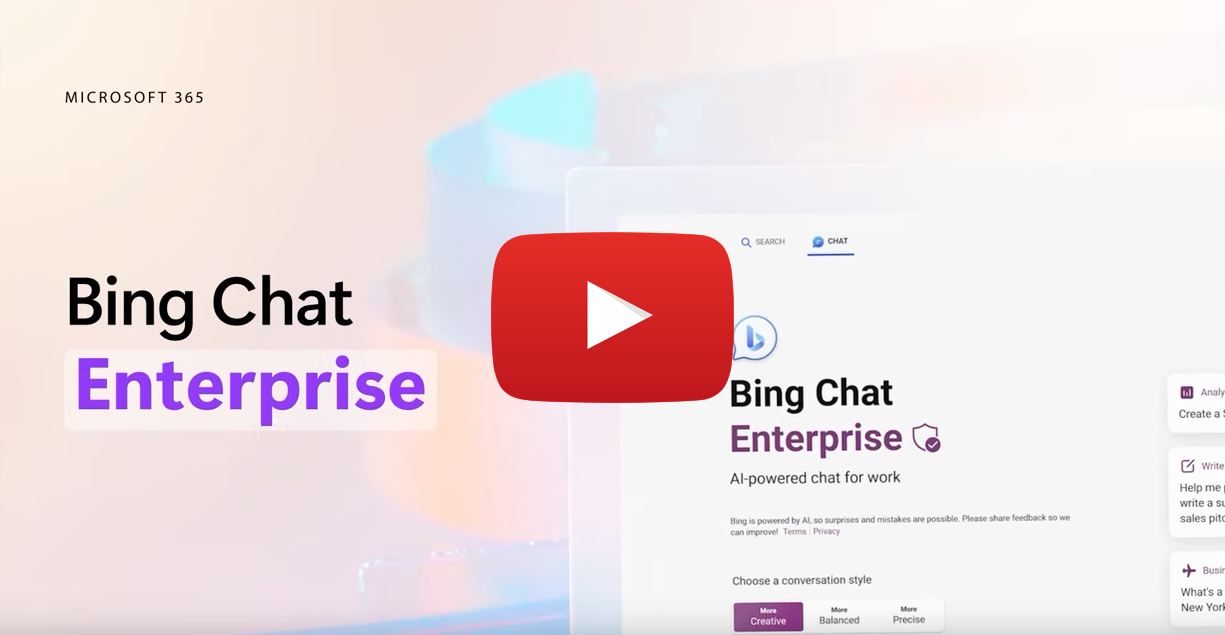
Watch this video to learn more about Copilot, including how to use the new AI-powered chat tool.
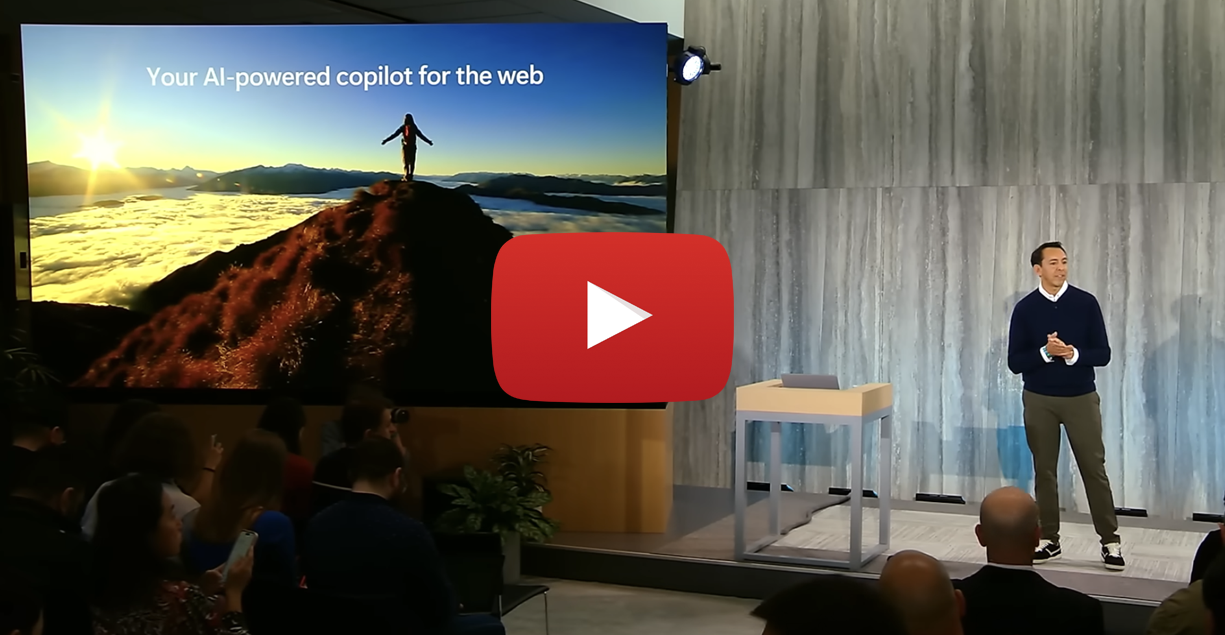
Watch this video to get a better understanding of how Copilot can be utilized via the Microsoft Edge browser.
Copilot (previously Bing Chat Enterprise) is Microsoft's AI-powered chat tool that is designed to offer a higher level of data protection for businesses. What goes in—and comes out—remains protected. Copilot is grounded in web data and provides complete answers with links to content sources, along with visual answers that include graphs, charts, and images—and is designed in line with Microsoft's AI principles.
Copilot is secure as it provides AI-powered chat for an organization with data protection. Conversely, ChatGPT is an open-source chatbot, which means anyone can access its code and modify it. This poses a security risk, as malicious actors can modify the code and use it to carry out cyberattacks. ChatGPT also has a specific limitation based on its accessibility of information. ChatGPT does not use the Internet to provide services to users, which restricts its knowledge of world affairs to only up until January 2022 and also means that it can't cross-reference with other sources to ensure that its responses are factual. On the other hand, Copilot has the ability to access the Internet for information purposes, so it has no knowledge restrictions of this type.
Copilot uses Microsoft Entra ID (currently known as Azure Active Directory) for authentication and authorization, and it only allows users to access it with their University of Miami account. Individual and business data in Copilot is protected and will not leak outside the organization. Chat data is not saved, and Microsoft has no eyes-on access to it. What goes in—and comes out—remains protected. Chat data is also not used to train Microsoft's underlying models. Copilot complies with the standard Microsoft Privacy Policy and Terms of Use agreements. Important: Copilot is not HIPAA compliant yet. Copilot unlocks generative AI for capabilities around asking questions and generating responses from the web. It does, however, have some limitations, such as working with documents and/or conducting custom searches within University of Miami firewalls. If you need any assistance around similar examples, or other potential use cases surrounding generative AI, please reach out to the Department of Data Science and Research Informatics at dsri@med.miami.edu or Academic Technologies at academictechnologies@miami.edu.
Microsoft's official statement – "Microsoft believes that when you create technologies that can change the world, you must also ensure that the technology is used responsibly. We are committed to creating responsible AI by design. Our work is guided by a core set of principles: fairness, reliability and safety, privacy and security, inclusiveness, transparency, and accountability. We are putting those principles into practice across the company to develop and deploy AI that will have a positive impact on society. We take a cross-company approach through cutting-edge research, best-of-breed engineering systems, and excellence in policy and governance."
As per Microsoft's higher education use agreement, only faculty, staff, and students ages 18 and above can access Copilot* with commercial data protection. *Note: To access Copilot, the preferred Internet browser is Microsoft Edge. While Copilot may function on other browsers, use of Microsoft Edge enables a full range of Microsoft's AI-related features.
For support, please contact the IT Service Desk – Coral Gables/Marine: 305-284-6565 or help@miami.edu; UHealth/MSOM: 305-243-5999 or help@med.miami.edu.
Technical Support
Back to Top